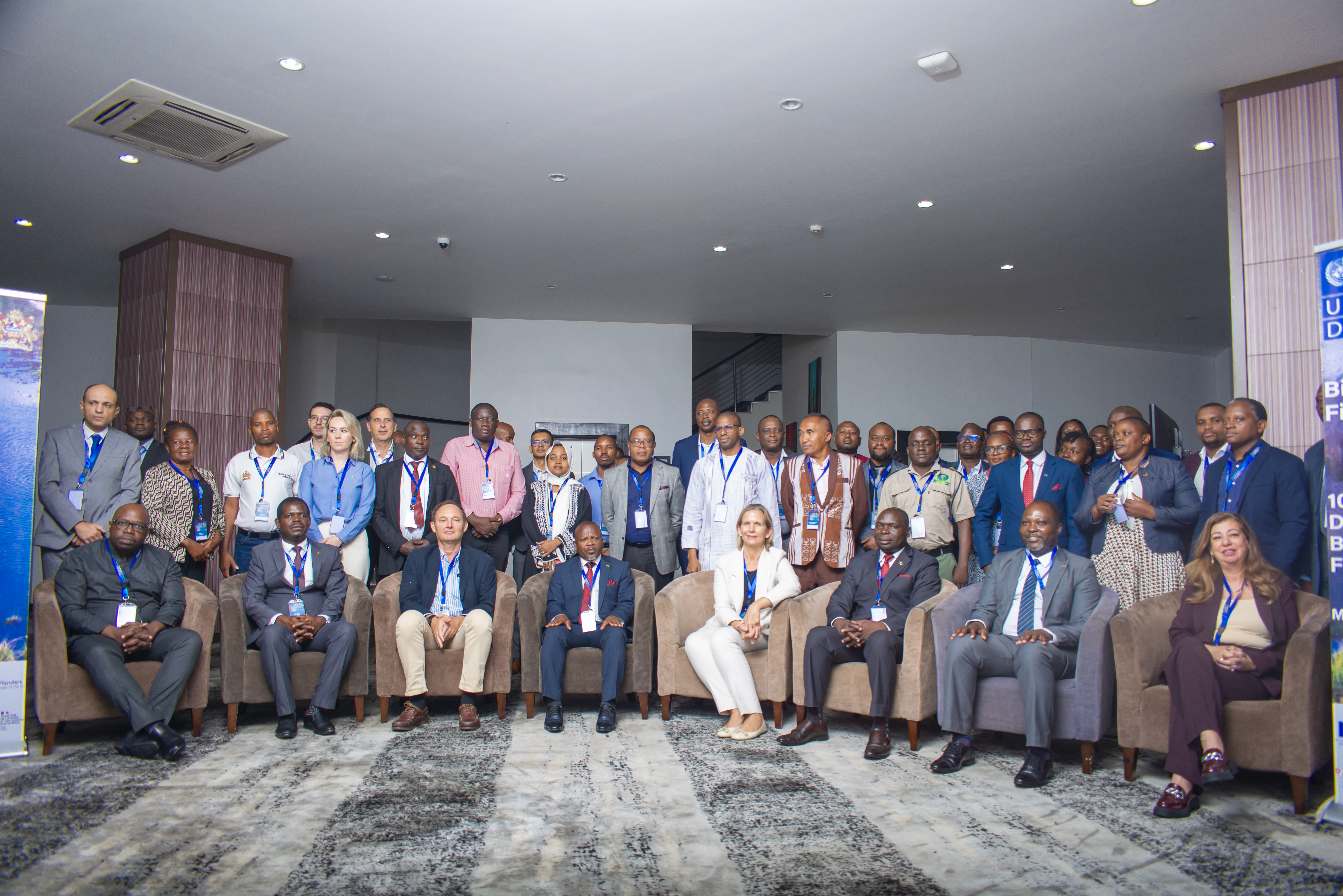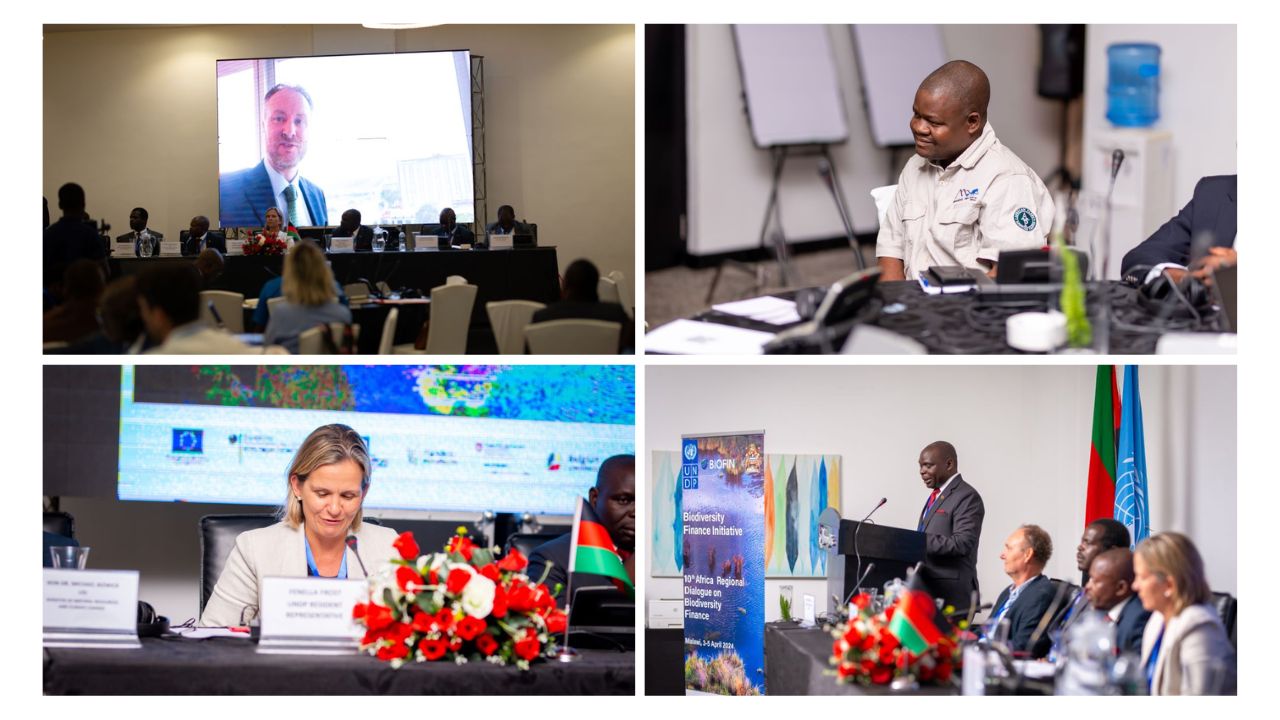
3 April 2024 – Blantyre: Planet Earth requires approximately US$ 950 billion annually for the restoration and protection of its imperiled ecosystems, vital for sustaining livelihoods. Yet, only an average of US$ 121 billion is allocated each year for biodiversity conservation. Closing this financing gap necessitates collaborative efforts from governments, private sector actors, NGOs, and communities to effectively mobilize and allocate resources for biodiversity conservation.
Since its inception in 2012, the the United Nations Development Programme's Biodiversity Finance Initiative (UNDP-BIOFIN) has played an important role in assisting 41 countries worldwide in developing biodiversity financing plans and mobilizing resources for conservation efforts. Its innovative approach enables countries to measure current biodiversity expenditures, determine financial needs, and identify suitable finance solutions to bridge national biodiversity finance gaps. In 2024, 91 more countries will embark on this journey with the help of the Global Environment Facility and UNDP-BIOFIN.
Annually, UNDP-BIOFIN organizes regional dialogues worldwide to exchange best practices and refine strategies, mechanisms, and methodologies. From 3-5 April, the 10th Africa Regional Dialogue for Biodiversity Finance was held in Blantyre, Malawi. Over 70 biodiversity finance experts and government officials from 16 countries convened to share experiences, discuss the effective implementation of Biodiversity Finance Plans, and explore opportunities for finance solutions.

"Globally, we have catalyzed US$400 million and unlocked US$1 billion in public finance for conservations purposes. We collaborate with local communities, civil society, national parks, private entities, and government organizations to secure the financing needed to achieve biodiversity objectives on the ground," said Bruno Mweemba, BIOFIN’s Technical Advisor.
Malawi joined the global BIOFIN partnership in 2018 and identified a need for US$93 million from 2020-2025 to meet national and sub-national biodiversity targets outlined in the National Biodiversity Strategy and Action Plan (NBSAP). The BIOFIN programme in Malawi developed a Biodiversity Finance Plan, outlining priority finance solutions.
"Biodiversity is a major economic and social development driver in Malawi, contributing significantly to food security, ecotourism, social benefits, recreation, and sectoral job creation within various sectors. Despite its importance, biodiversity was not previously prioritized. BIOFIN's National Biodiversity Expenditure Review facilitated full integration of biodiversity into national planning agendas and financial systems. We have identified 11 finance solutions to generate US$6.3 million between 2021-2025 in Malawi," Hilton Msamali, stated the National BIOFIN Technical Coordinator in Malawi.
In his remarks the Minister of Natural Resources and Climate Change, Hon. Dr. Michael Bizwick Usi commented, “conservation has a huge cost, it costs money to recruit human resources that protect our biodiversity hotspots; remove invasive alien species; reduce poaching; prevent deforestation and sustain the ecosystem services.” He further said, “increasing budget expenditure for biodiversity conservation is not only a moral imperative but also an investment in our collective future. We need to act swiftly and decisively to prioritize biodiversity conservation in the national budget and demonstrate our country's commitment to preserving the rich biodiversity for sustainable economic development”.
The regional dialogue covered diverse financing opportunities for biodiversity, including financial sector participation, positive incentives, impact investments, repurposing harmful subsidies and community engagement. Participants discussed payments for ecosystem services, digital finance solutions and other topics. At the 15th Conference of the Parties (COP 15) to the Convention on Biological Diversity (CBD), countries committed to update their national biodiversity strategies and action plans and biodiversity financing plans, which are crucial for closing biodiversity financing gaps and implementing the CBD at the national level. Participants discussed how countries can maximize their impact on biodiversity conservation efforts by integrating these two plans.
Addressing biodiversity finance is critical for environmental sustainability, human well-being, and the achievement of global development goals.
Categories
Archives
- Enero 2025 (1)
- Diciembre 2024 (5)
- Noviembre 2024 (5)
- Octubre 2024 (14)
- Septiembre 2024 (6)
- Agosto 2024 (9)
- Julio 2024 (7)
- Junio 2024 (3)
- Mayo 2024 (6)
- Abril 2024 (5)